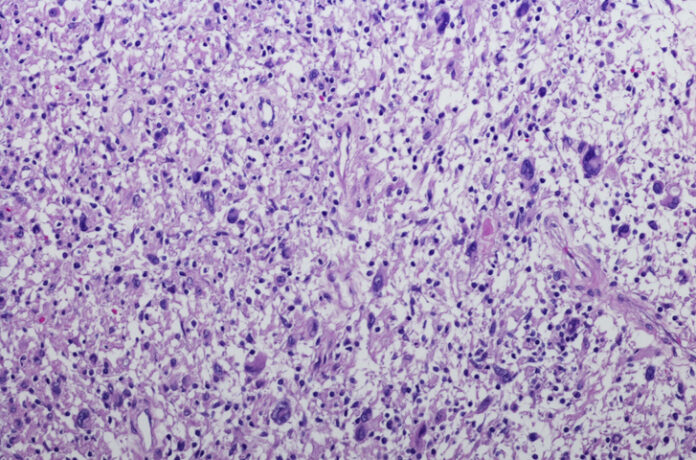
Almost half of adults and children with neurofibromatosis type 1 (NF1) responded to mirdametinib, a MEK1/2 inhibitor, in a Phase IIb trial, ReNeu. The patients had symptomatic neurofibromatosis type 1-associated plexiform neurofibroma. Mirdametinib is an investigational, highly selective, potent, allosteric, central nervous system (CNS)–penetrant, small-molecule MEK1/2 inhibitor.
The study appears in Journal of Clinical Oncology (JCO), and led by Christopher L. Moertel, MD, of the University of Minnesota in Minneapolis.
“This is a quantum leap forward for this disease; studies evaluating mirdametinib’s ability to prevent the development of new plexiform neurofibromas in NF1 patients and identifying optimal chronic dosing regimens are needed,” wrote JCO associate editor Jonathan P.S. Knisely, MD, about the study.
Overall, 53 of 114 patients met response criteria, defined as ≥20% reduction in target plexiform neurofibroma (PN) volume on consecutive MRI scans. Responses occurred in 24 of 58 adults and 29 of 56 children. PN reductions as great as 80% were observed.
The treatment was generally well tolerated with the most common treatment-related adverse events in adults and children being dermatitis acneiform and diarrhea.
Neurofibromatosis type 1 (NF1) is an autosomal-dominant genetic condition caused by loss-of-function variants in the NF1 gene, with a birth incidence of approximately 1 per 2,500. NF1 variants result in neurofibromin dysfunction and persistent mitogen-activated protein kinase (MAPK) pathway activation.
PNs develop in 30–50% of patients with NF1. These lesions can often cause pain, organ displacement/compression, impaired physical function, disfigurement, and substantially impaired quality of life. They can also transform into malignant peripheral nerve sheath tumors.
These patients have limited treatment options. Historically, surgery was the primary treatment, however, it is associated with life-altering morbidities and tumor regrowth. The MEK inhibitor selumetinib is approved in the United States for patients age two to 17 years with symptomatic, inoperable NF1-PN, but is only available as capsules, limiting its use in young children or those with difficulty in swallowing. No therapies are currently approved for adults with NF1-PN.
Mirdametinib is orally administered as a capsule or tablet for oral suspension, with no fasting requirement. In an earlier phase II trial in 19 adults and adolescents with inoperable NF1-PN, eight (42%) patients achieved a partial response to mirdametinib by cycle 12 (28-day cycles).
The authors reported, “In ReNeu, the largest multicenter NF1-PN trial reported to date, mirdametinib treatment demonstrated significant confirmed ORRs by BICR, deep and durable PN volume reductions, and early, sustained, and clinically meaningful improvement in pain and HRQOL. Mirdametinib was well-tolerated in adults and children.”





